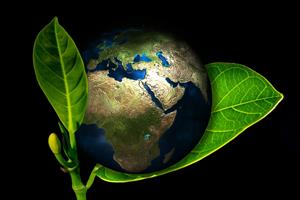Can we eat our way out of the Climate Emergency?
The global food industry is damaging our planet and is one of the leading causes of climate change, depletion of freshwater resources and pollution through fertilisers and pesticides, and this is only expected to get worse unless we take action.
We are now all aware that the food we choose to eat will have to change due to its large impact on the environment. So, what are the facts? How should we change our diets, by how much and how quickly? What are the things to be careful about when changing our traditional diets? Over the next two months I will be exploring these issues.
A good starting point will be that, as a species, we should be aiming to keep our food system within environmental limits. A study published in Nature 1. points the way.
They suggest no one single measure is enough, but a combination of measures will be needed.
1. The latest recommendations from the Committee on Climate Change claim that a 20 per cent reduction in beef, lamb and dairy consumption would help the UK to cut its greenhouse gas emissions to almost zero by 2050. So that gives you something to aim for; moving towards a healthier, more plant based diet.
2. Eating locally grown food. Rich Pirog of the Leopold Center for Sustainable Agriculture reports that the average fresh food item on our dinner table travels 1,500 miles to get there. Buying locally produced food eliminates the need for all that fuel-guzzling transportation.

